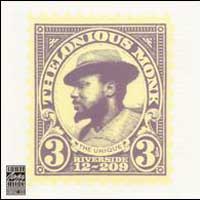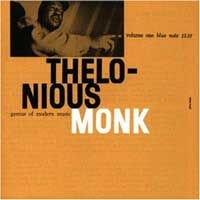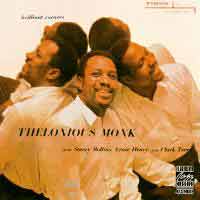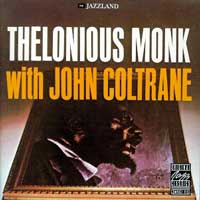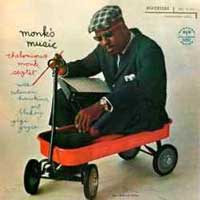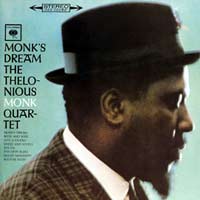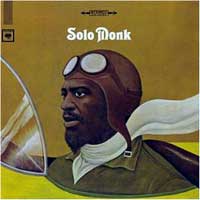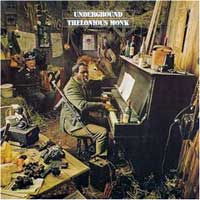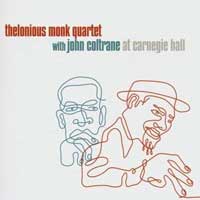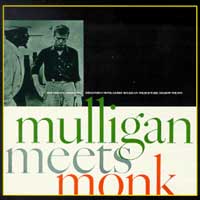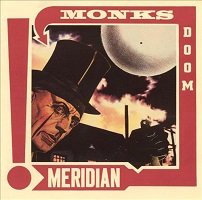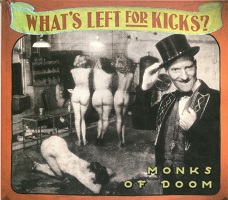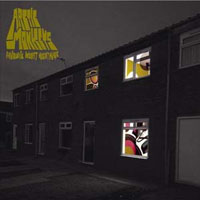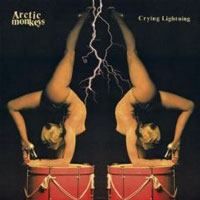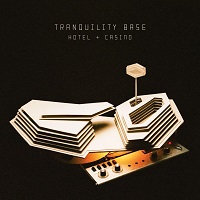|
The seven-song Unique Thelonious Monk (1956) platter was the pianist's
second during his remarkable five-year tenure on Riverside. His debut
for the label was the aptly titled Plays Duke Ellington (1955) and once
again, on this disc, Monk's song selection did not feature any original
compositions. Rather, the well-chosen standards included exemplify and
help further establish the pianist and bandleader within the context of
familiar melodies at the head of a trio -- consisting of Oscar Pettiford
(bass) and Art Blakey (drums). Regarding the personnel, while Pettiford
had also accompanied Monk on the Ellington sides, Blakey replaces Kenny
Clarke. The pairing of Monk and Blakey cannot be overstated. Immediately,
evidence of their uncanny instrumental interaction is the rhythmic focal
point of "Liza, All the Clouds'll Roll Away" as the two play
musical cat-and-mouse. They cajole and wheedle atop Pettiford's undulating
undercurrent as it sonically corals their skilled syncopation and otherwise
inspired mile-a-minute interjections. This is starkly contrast to the
haunting, lyrical piano solo on "Memories of You." Monk infuses
the piece with such profound ingenuity and integrity that his re-evaluation
and innovative arrangement are singularly and undeniably his own. Fats
Waller's "Honeysuckle Rose" reels with a frolicking and ever-so-slightly
inebriated gate. It is likewise highlighted by Monk's dreamlike single-note
runs up and down the keyboard and the stride piano-style chord progressions
that preserves a fluidity within the tune. The advanced score maintains
a guise of almost goofy abandon within Monk's highly logical and well-sculpted
musical structure. The juxtaposition of "Darn That Dream" is
another study in the vacillating moods of The Unique Thelonious Monk.
The sophisticated performance is understated, yet remains loose and limber
and perfectly in keeping with the album's leitmotif of exploring Monk's
skills as an arranger and musician. As if he were testing his audience,
the manic and atonal opening to "Tea for Two" -- briefly featuring
Pettiford on bowed upright bass -- rollicks with a youthful visage, rather
than being a simple reworking of this well-established classic. This LP
concludes with one of Monk's most memorable pieces on the fun and freewheeling
"Just You, Just Me." The trio struts and glides as Monk's intricate
fingering simultaneously displays his physical dexterity as well as his
ability to play so deftly in the moment. Both attributes would resurface
ten-fold once Monk began to animate his own compositions on the genre-defining
Brilliant Corners (1956).
(by Lindsay Planer, All
Music Guide)
|
